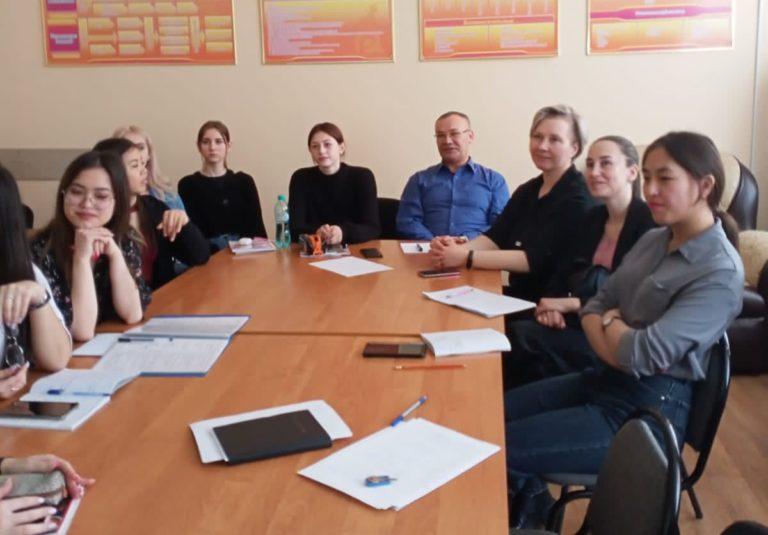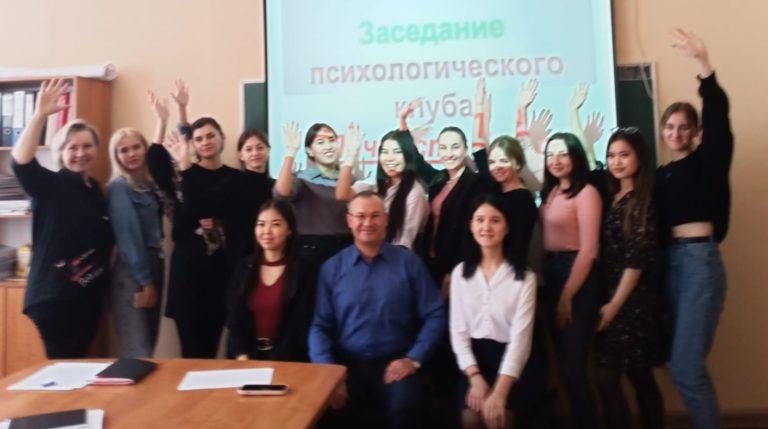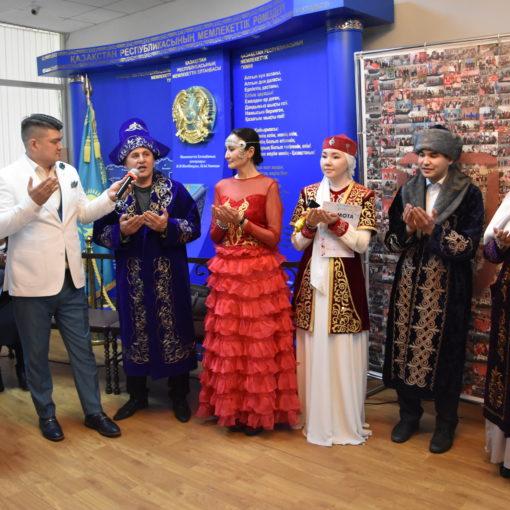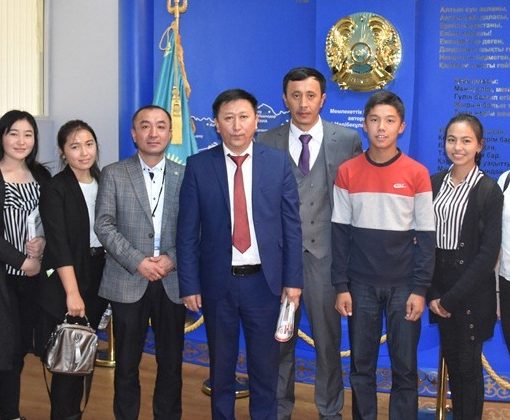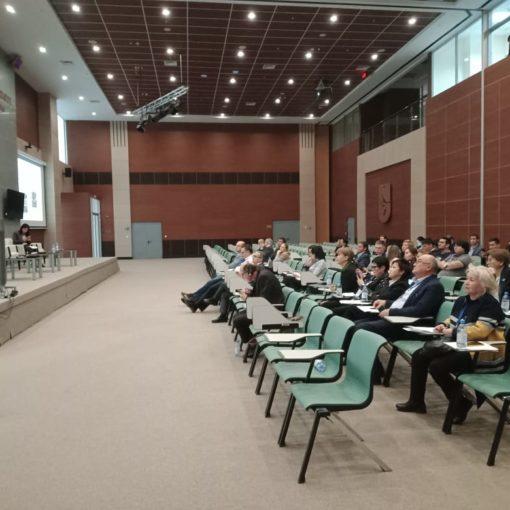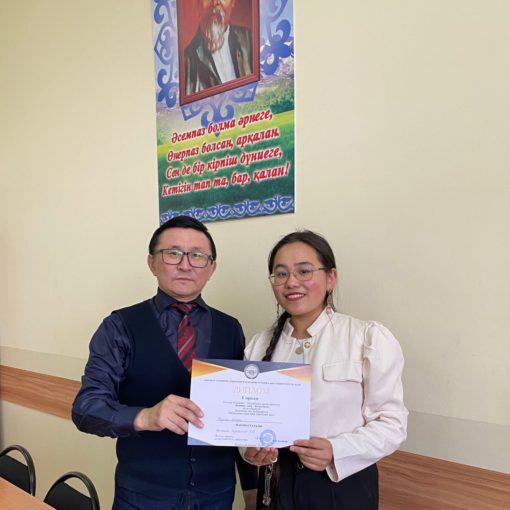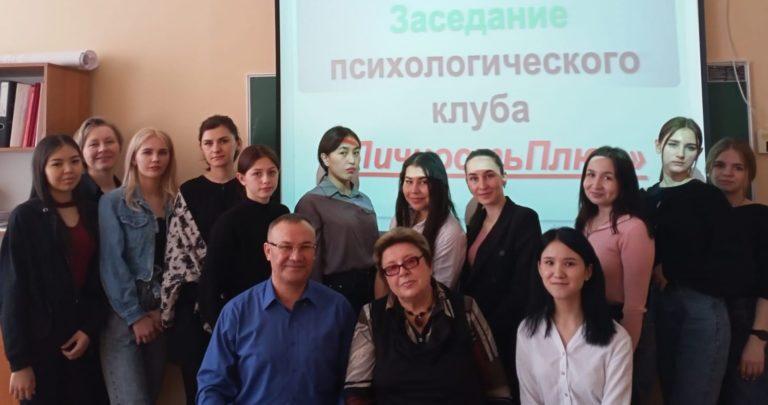
The March meeting of the psychological club “Personality Plus” was pleased that representatives of different generations and educational programs gathered: “Pedagogy and psychology”, “Preschool education and upbringing”, “Pedagogy and methods of primary education”, students in the first, third and fourth years.
As good friends of our club, we met Baurzhan Zhienbayev, a graduate of the last year of the OP “Pedagogy and Psychology” (colonel, head of the Department of Military Affairs of the KMA), Kimlach Lyubov, Mantrova Yulia, full–time students of the abbreviated form of education of the OP “Pedagogy and methods of primary education”.
That is why the topic of our meeting is Psychological research: “The Crossroads of generations”.
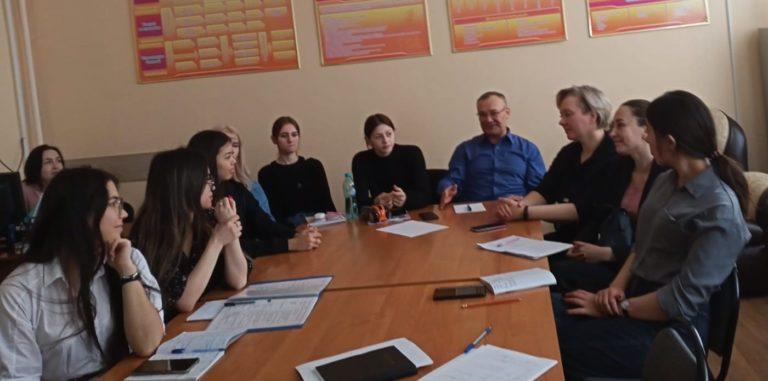
The president of our club Dilnaza Nazarova, opening the meeting, noted that such meetings of students of different generations open up the opportunity not only to show their own scientific knowledge, their author’s position in the study of psychological problems, but also to include in their emerging professional image of the world the experience of knowing their predecessors.
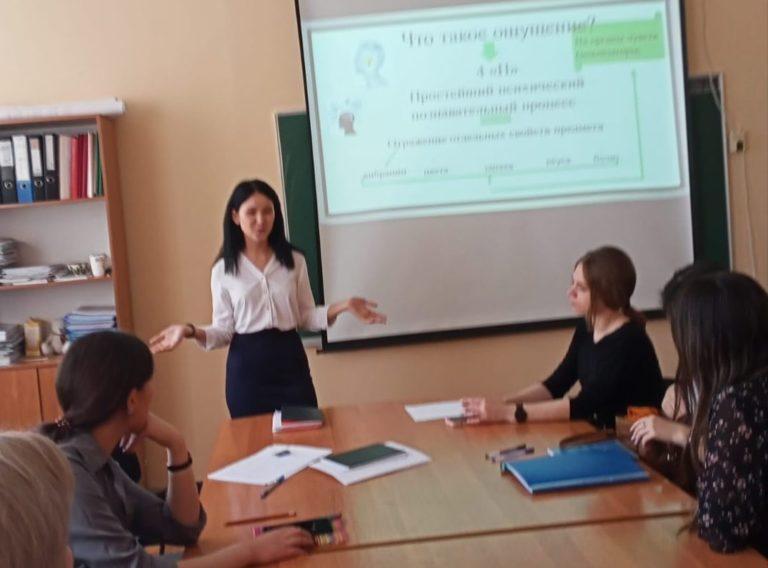
The debut of the speech at the club meeting was a reflexive analysis of a 3rd-year student Irina Dontsova, who at a high scientific level and at the same time was inspired to reflect on the controversial period of adolescence. From St. Hall to Zh.Piaget, through the theories of recapitulation, fundamental decentralization, identity, she was able to explain the causes of psychological breakdown of the transitional age and identify those value-semantic priorities that form a special adolescent subculture.
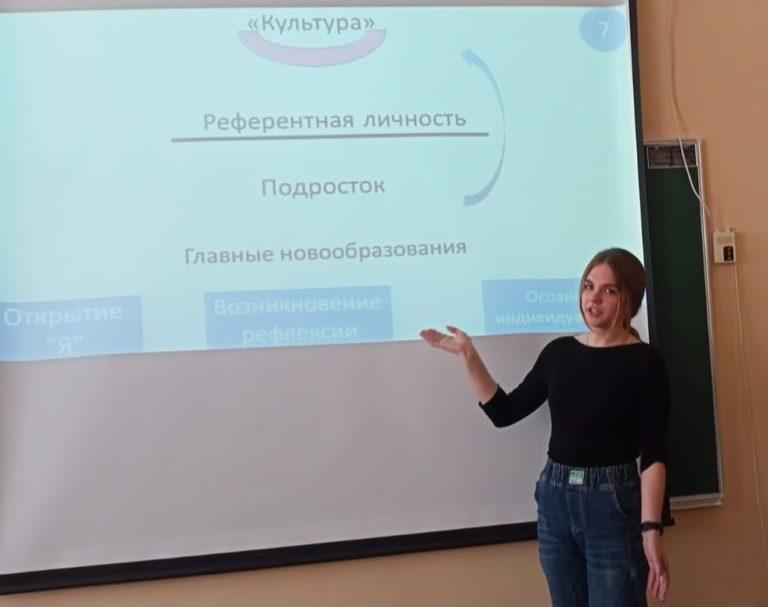
“Mnemic processes: riddles of memory” – Zhanna Kusainova, a student of the OP “Pedagogy and Psychology”, spoke on this topic, which opened the opportunity to understand the essence of the processes of reminiscence (V. Urbanchich) and interference (G.Ebbingauz), explaining why a student is not able to remember what is necessary at the right moment, but clearly reproduces it “delayed”, why studying one material, he reproduces another and why, from the point of view of A. Yost, it is impossible to “let in” a large amount of knowledge in one day. The student found her own scientific connection between the “riddles of memory” and her favorite probabilistic or stochastic theory, the knowledge of which is so necessary for our students.
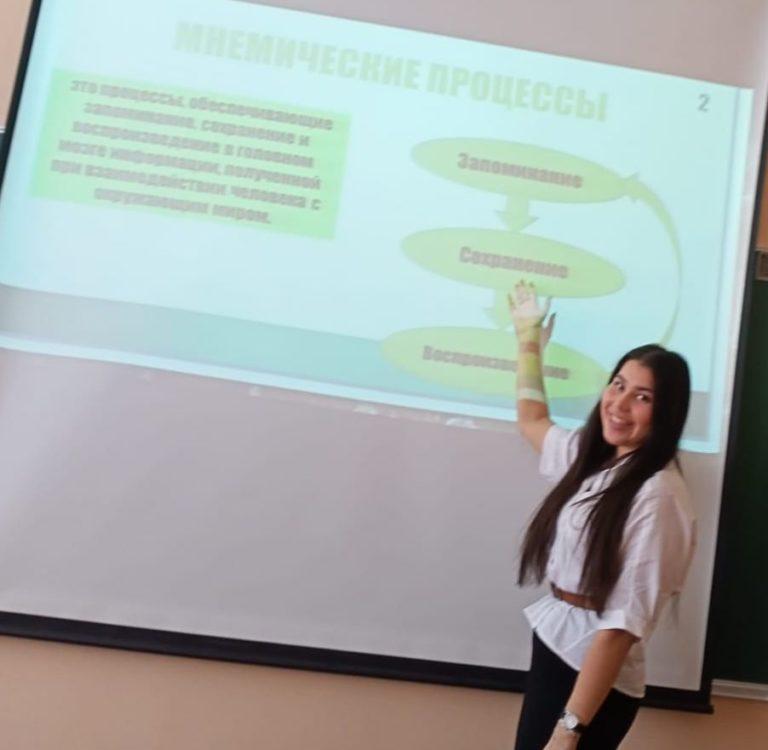
I would like to emphasize that Laura Zhampeisova (IV year, OP DOV), as a future preschool educator, deeply interested in psychological science, did not accidentally choose the topic for her scientific reflection “Deprivation as a negative mental state of a modern person”. Through the analysis of social, informational, seasonal types of deprivation, she proved that it is maternal deprivation (as the loss of the primary genetic ties of mother and child) that is not only catastrophic, but also capable of destroying life.
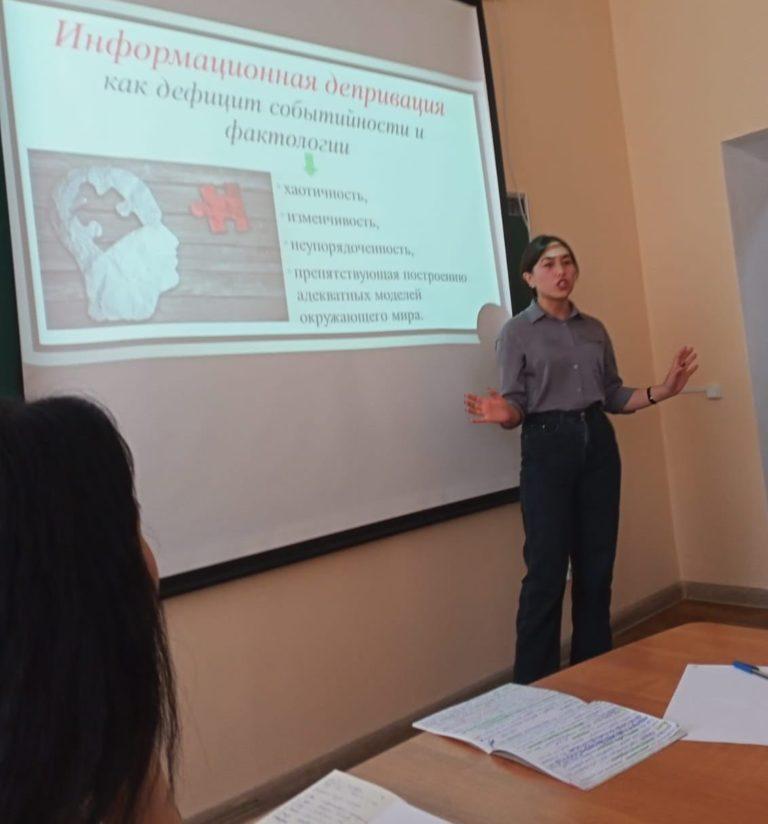

First–year student Lisa Kerimova chose the Renaissance from the stages of the development of psychological knowledge – the heyday of all kinds of arts (music, poetry, architecture). But, surprisingly, it was mechanics and natural sciences that formed the basis of psychological knowledge and dynamized it – this allowed introspectively studying consciousness as the highest level of a person’s reflection of reality when his relations to the world, people and himself arise.
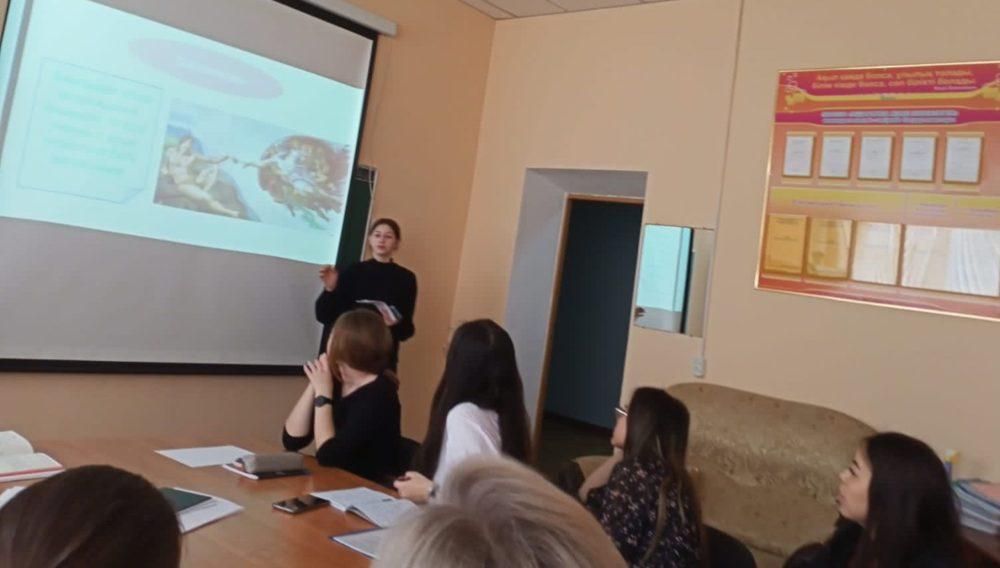
We are glad to meet you at our favorite psychological club “Personality Plus”, because here you can have a warm meeting with interesting people, express your author’s position and scientific reflections on topical psychological problems.
